SsangYong Korando VS Subaru Forester – Specs, Efficiency & Price Comparison
Which model is the better choice – the SsangYong Korando or the Subaru Forester? We compare performance (190 HP vs 150 HP), boot capacity (551 L vs 509 L), efficiency (16.80 kWh7.50 L vs 8.10 L), and of course, the price (27000 £ vs 32400 £).
Find out now which car fits your needs better!
The SsangYong Korando (SUV) is powered by a Petrol or Electric engine and comes with a Manuel or Automatic transmission. In comparison, the Subaru Forester (SUV) features a Petrol MHEV engine and a Automatic gearbox.
When it comes to boot capacity, the SsangYong Korando offers 551 L, while the Subaru Forester provides 509 L – depending on what matters most to you. If you’re looking for more power, you’ll need to decide whether the 190 HP of the SsangYong Korando or the 150 HP of the Subaru Forester suits your needs better.
There are also differences in efficiency: 16.80 kWh7.50 L vs 8.10 L. In terms of price, the SsangYong Korando starts at 27000 £, while the Subaru Forester is available from 32400 £.
Compare all the key specs now and find out which model fits your lifestyle best!
SsangYong Korando
The SsangYong Korando offers a blend of contemporary design and practicality, making it an appealing choice for urban adventurers. Its spacious interior and comfortable seating ensure a pleasant driving experience for both driver and passengers. With its reliable performance and advanced features, the Korando stands out in the competitive SUV market.
details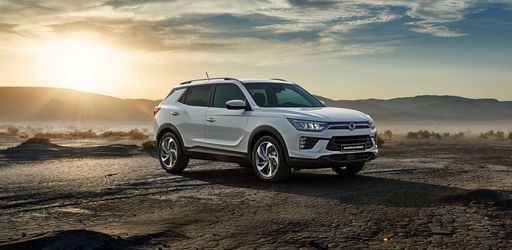 @ Ssangyong
@ Ssangyong
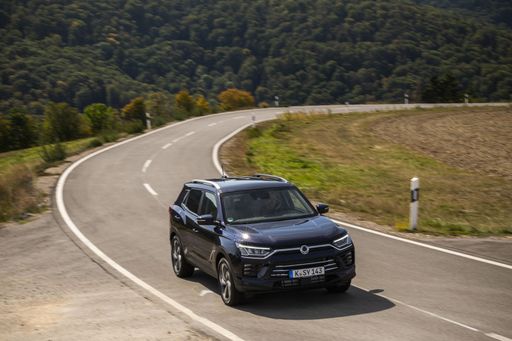 @ Ssangyong
@ Ssangyong
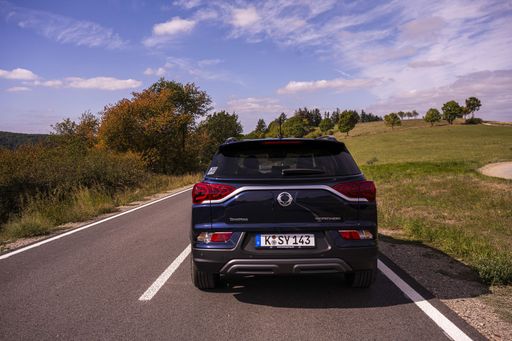 @ Ssangyong
@ Ssangyong
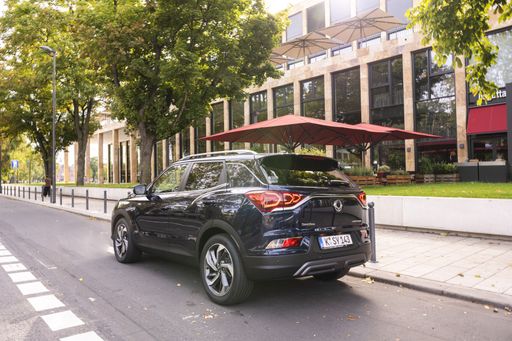 @ Ssangyong
@ Ssangyong
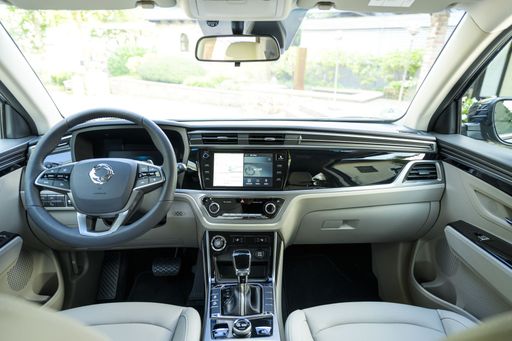 @ Ssangyong
@ Ssangyong
Subaru Forester
The Subaru Forester is a versatile SUV known for its impressive off-road capabilities and practical design. With a spacious interior and advanced safety features, it offers comfort and security for both city driving and outdoor adventures. Its reliable performance and all-wheel-drive system make it a popular choice among those who appreciate a combination of functionality and rugged charm.
details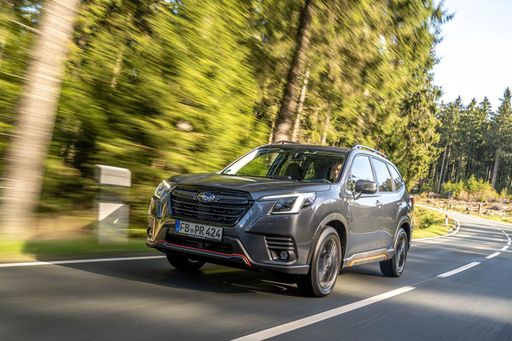 @ Subaru
@ Subaru
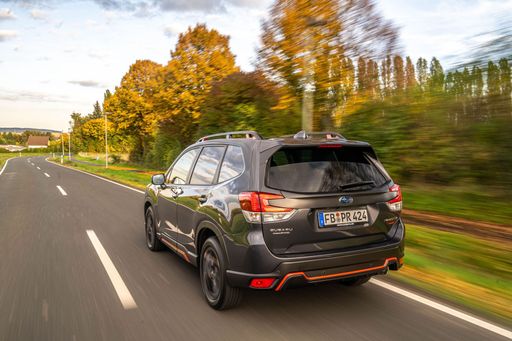 @ Subaru
@ Subaru
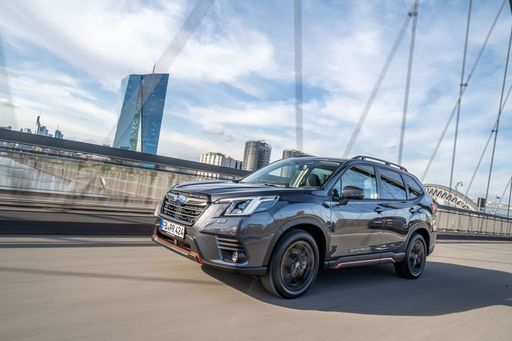 @ Subaru
@ Subaru
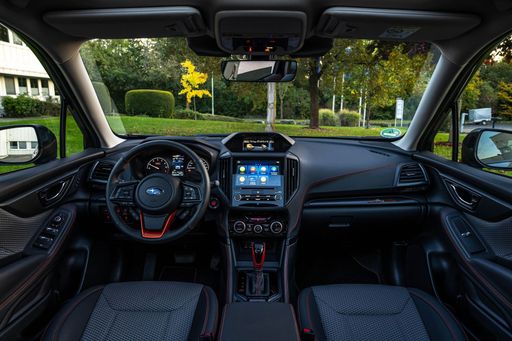 @ Subaru
@ Subaru
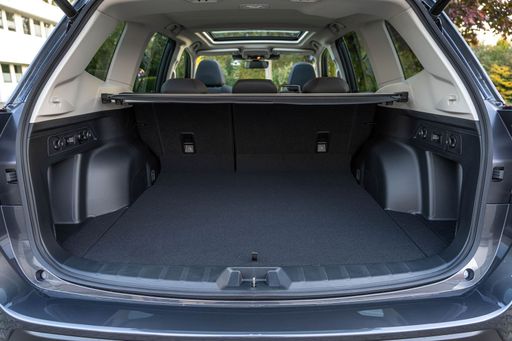 @ Subaru
@ Subaru

|

|
|
|
|
Costs and Consumption |
|
|---|---|
|
Price
27000 - 42000 £
|
Price
32400 - 42200 £
|
|
Consumption L/100km
7.5 - 8.6 L
|
Consumption L/100km
8.10 L
|
|
Consumption kWh/100km
16.80 kWh
|
Consumption kWh/100km
-
|
|
Electric Range
339 km
|
Electric Range
-
|
|
Battery Capacity
-
|
Battery Capacity
0.60 kWh
|
|
co2
0 - 197 g/km
|
co2
183 - 185 g/km
|
|
Fuel tank capacity
50 L
|
Fuel tank capacity
48 L
|
Dimensions and Body |
|
|---|---|
|
Body Type
SUV
|
Body Type
SUV
|
|
Seats
5
|
Seats
5
|
|
Doors
5
|
Doors
5
|
|
Curb weight
1517 - 1840 kg
|
Curb weight
1658 - 1739 kg
|
|
Trunk capacity
551 L
|
Trunk capacity
508 - 509 L
|
|
Length
4450 - 4465 mm
|
Length
4640 - 4670 mm
|
|
Width
1870 mm
|
Width
1815 - 1830 mm
|
|
Height
1620 - 1645 mm
|
Height
1730 mm
|
|
Payload
410 - 463 kg
|
Payload
446 - 527 kg
|
Engine and Performance |
|
|---|---|
|
Engine Type
Petrol, Electric
|
Engine Type
Petrol MHEV
|
|
Transmission
Manuel, Automatic
|
Transmission
Automatic
|
|
Transmission Detail
Manual Gearbox, Automatic Gearbox, Reduction Gearbox
|
Transmission Detail
CVT
|
|
Drive Type
Front-Wheel Drive, All-Wheel Drive
|
Drive Type
All-Wheel Drive
|
|
Power HP
163 - 190 HP
|
Power HP
136 - 150 HP
|
|
Acceleration 0-100km/h
8.40 s
|
Acceleration 0-100km/h
11.8 - 12.2 s
|
|
Max Speed
156 - 191 km/h
|
Max Speed
188 km/h
|
|
Torque
260 - 360 Nm
|
Torque
182 - 194 Nm
|
|
Number of Cylinders
4
|
Number of Cylinders
4
|
|
Power kW
120 - 140 kW
|
Power kW
100 - 110 kW
|
|
Engine capacity
1497 cm3
|
Engine capacity
1995 cm3
|
General |
|
|---|---|
|
Model Year
2021 - 2023
|
Model Year
2021 - 2025
|
|
CO2 Efficiency Class
F, G, A
|
CO2 Efficiency Class
G
|
|
Brand
SsangYong
|
Brand
Subaru
|
SsangYong Korando
Discovering the SsangYong Korando: Combining Performance with Innovation
The SsangYong Korando has persistently evolved, emerging as a formidable presence in the compact SUV segment. With a blend of intriguing design, versatile engine options, and cutting-edge technology, the Korando aims to cater to a diverse array of driving preferences and needs. In this article, we delve into the technical intricacies and pioneering innovations that define the vehicle.
A Versatile Engine Line-up: Catering to Petrol and Electric Enthusiasts
The Korando provides a remarkable variety of powertrains, accommodating drivers who favour both traditional petrol engines and modern electric motors. For petrol enthusiasts, the Korando comes equipped with a 1.5 GDI-T engine, boasting a power output of 163 PS. Available in both manual and automatic transmission, and offering either front-wheel or all-wheel drive, these variants promise a dynamically engaging driving experience.
The brand’s commitment to sustainability is evident with the introduction of the E-Motion model, which is powered by an electric motor delivering 190 PS. With a commendable range of 339 km and an energy consumption of 16.8 kWh/100km, the E-Motion exemplifies SsangYong's ambition to shape the future of eco-friendly motoring.
Technical Excellence: Performance and Efficiency
With a peak speed ranging between 156 to 191 km/h, the Korando ensures that drivers experience both agility and responsiveness. The petrol variants offer a respectable efficiency, with fuel consumption spanning from 7.5 to 8.6 L/100km, while the electric variant promotes zero emissions. This makes the Korando an optimal choice for those conscious of both performance and environmental impact.
Acceleration from 0 to 100 km/h in just 8.4 seconds—paired with a torque range of 260 to 360 Nm—ensures an exhilarating ride whether navigating city streets or venturing onto open highways. Moreover, with a robust towing capacity, the Korando stands as a reliable companion for any adventure.
Interior Quality and Innovative Features
Inside the Korando, occupants are greeted by a spacious cabin designed with emphasis on comfort and practicality. Advanced infotainment systems seamlessly integrate with connectivity features, ensuring that every journey is both entertaining and stress-free. Emphasising safety, the Korando is equipped with multiple driver-assistance systems, including adaptive cruise control and lane-keeping assist.
Mirroring its exterior aesthetics, the interior is crafted with premium materials, providing a serene ambience throughout the ride. With abundant luggage space, a family of five can effortlessly embark on long-distance travels without compromises on space or comfort.
Conclusion: A Synergy of Tradition and Modernity
The SsangYong Korando seamlessly merges robust performance with cutting-edge innovation, appealing to a wide demographic of drivers. Whether drawn to the unmistakable power of its petrol engines or the sustainable allure of its electric variant, prospective owners are sure to find a model that complements their lifestyle. The Korando remains an impactful player in the SUV landscape, continually adapting to the demands of modern-day motoring while staying true to its heritage.
Subaru Forester
The Subaru Forester: A Staple of Innovation
The Subaru Forester continues to stand out as a robust and reliable choice in the SUV market. Known for its rugged capabilities and thoughtful design, the Forester combines traditional Subaru strengths with modern technological innovations. As an all-wheel-drive vehicle, it promises safety, efficiency, and performance in a dynamic package.
Engineering and Performance
At the heart of the Subaru Forester lies its 2.0-litre petrol mild-hybrid engine, delivering a stout 150 PS and 194 Nm of torque. This power is channelled through an advanced CVT gearbox, ensuring smooth and responsive acceleration. The vehicle can sprint from 0 to 100 km/h in approximately 11.8 seconds, showing its agility despite its SUV stature.
One of the highlights is its all-wheel-drive system, designed to offer excellent traction and stability across diverse driving conditions. The Forester provides a top speed of 188 km/h, ensuring an exciting drive whether you're navigating city streets or venturing onto the open road.
Technical Specifications
The Forester maintains a balance between practicality and efficiency. With a fuel consumption rate of 8.1 L/100km and CO2 emissions positioned at 185 g/km, this SUV provides an efficient yet powerful performance. The mild-hybrid system is supported by a 0.6 kWh battery, offering enhanced fuel economy and reducing environmental impact.
Weighing between 1658 and 1693 kg, the Forester is designed to offer both robustness and fuel efficiency. It boasts a generous cargo capacity of 509 litres, perfect for both daily use and adventurous getaways. The exterior dimensions—4640 mm in length, 1815 mm in width, and 1730 mm in height—strike a balance between presence and manoeuvrability.
Design and Interior Features
With a sleek and modern design, the Forester is available in several trims catering to different customer preferences, such as the Trend Lineartronic, Active Lineartronic, and the luxurious Edition Exclusive Cross Lineartronic. The interior space is noteworthy, providing comfortable seating for five passengers, making it an excellent option for family journeys.
Safety and convenience are paramount in the Forester, featuring driver assistance systems designed to support and protect. The model comes equipped with state-of-the-art technology to keep occupants entertained and connected, enhancing the driving experience significantly.
Affordability and Running Costs
Price-wise, the Subaru Forester ranges from €37,790 to €46,450, aligning with its features and capabilities. The monthly costs for ownership may vary between €1125 and €1221, with costs per kilometre ranging from 45 to 48.9 cents. For those seeking an SUV that's a combination of comfort, reliability, and reasonable running costs, the Forester presents a persuasive choice.
Conclusion
The Subaru Forester remains a solid contender in the SUV segment, offering a mix of performance, practicality, and modern features. This vehicle is engineered for those who desire a dependable and versatile companion for all their adventures. With its blend of innovative technologies and classic Subaru reliability, the Forester continues to be an attractive option for discerning drivers.
The prices and data displayed are estimates based on German list prices and may vary by country. This information is not legally binding.
